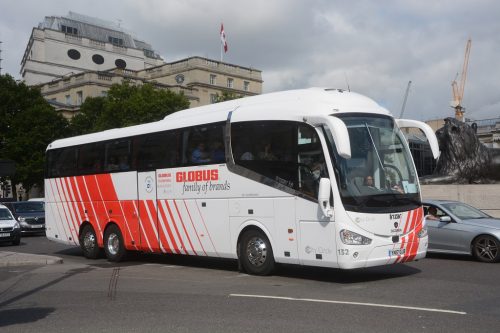 Martin West is Scania Great Britain’s new Sales Director New Bus & Coach. Drawing on almost a quarter of a century’s experience with the company he started with as a trainee salesman, he has clear views on how he wants to develop the customer experience and take the business forward, as he outlined to Andy Izatt
Martin West is Scania Great Britain’s new Sales Director New Bus & Coach. Drawing on almost a quarter of a century’s experience with the company he started with as a trainee salesman, he has clear views on how he wants to develop the customer experience and take the business forward, as he outlined to Andy Izatt
“It was September 1994 when I started working for Scania Bus & Coach as a trainee salesman at Worksop,” explained Martin West who was appointed Scania Great Britain’s Sales Director New Bus & Coach last July. “Before that I’d worked for Refuge Assurance and Combined Insurance selling endowments, pensions and accident insurance. When my mates were in the pub of an evening, I would be visiting my customers at home, sitting down to a cup of tea with them and collecting that month’s premium. I enjoyed it because of the people I was meeting.
“While we lived in Retford, my Dad worked in Worksop and used to visit the jobcentre on my behalf to see what might be available. He spotted a trainee sales job at Scania. I was interviewed by Ian Hall who was Sales Manager at the time, then Ian and Managing Director Don MacIntosh. What Ian and Don understood was the value of bringing in someone enthusiastic from outside the industry who would then find a place within the business and I was offered the job.
“I knew nothing about coaches when I joined Scania. James Morgan had been the previous trainee, but had been promoted to Area Account Manager for the South West. James showed me around the Worksop site and there was a Van Hool Scania in the workshop. Remember the old style Van Hool badge? I asked him what a Van Tool was.[…]
By subscribing you will benefit from:
- Operator & Supplier Profiles
- Face-to-Face Interviews
- Lastest News
- Test Drives and Reviews
- Legal Updates
- Route Focus
- Industry Insider Opinions
- Passenger Perspective
- Vehicle Launches
- and much more!


